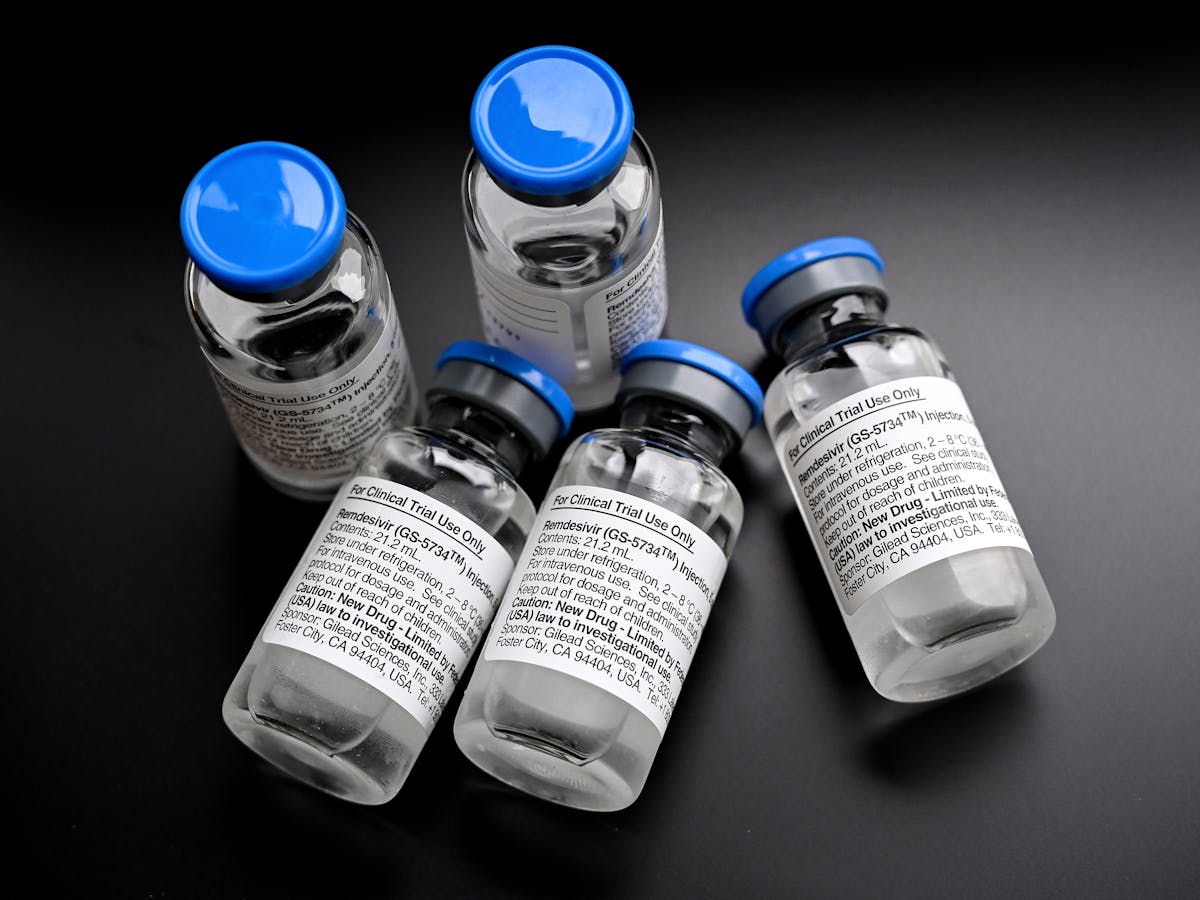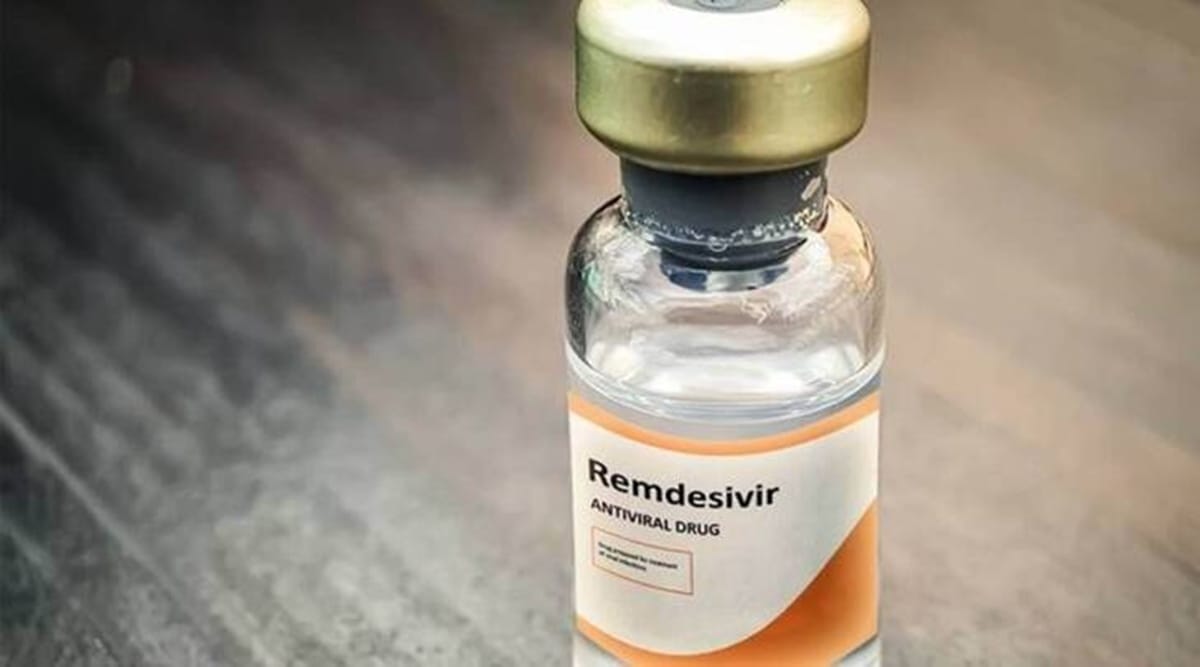Remdesivir Is Not A Great Remedy And Is Harmful To The Heart, According To A Study.
Remdesivir is recommended to patients whose oxygen saturation level is less than 94%. It reduces the length of hospital stay for COVID-19 patients with lower respiratory tract infections. Several cardiovascular side effects of remdesivir include hypotension, bradycardia, atrial fibrillation, QRS widening, a prolonged QT interval, and radiotherapists De points, and cardiac arrest, according to a study conducted by researchers from Osmania Medical College in Hyderabad and others.

A multinational investigation comprising experts from Hyderabad showed that Remdesivir, the miracle medicine during the height of the Covid-19 epidemic, can slow down the heartbeat (bradycardia) and interfere with the operation of mitochondria, the powerhouse of the cell. Researchers from Hyderabad’s Osmania Medical College (OMC) were a part of the multinational team. 
According to the study, Remdesivir had adverse effects on the heart, including hypotension (low blood pressure), a low heartbeat, an irregular heartbeat (atrial fibrillation), and even a heart attack, despite shortening the time to recovery in hospitalized COVID-19 patients with lower respiratory tract infections (less than 60 beats per minute).
Researchers from Tianjin Medical University in China, Avalon University School of Medicine in Curacao, Dayanand Medical College and Hospital in Ludhiana, and Penn State University in Pennsylvania, USA, in addition to OMC in Hyderabad, were also involved.”Remdesivir has been shown to speed up healing. Yet, cardiac myocytes (heart muscle cells) can experience considerable cytotoxic effects as a result of it “the scientists reported.
They did note that more study was required to fully comprehend the mechanism causing bradycardia in Covid-19 patients receiving Remdesivir, whether they had a cardiovascular problem or not.
The study looked at the WHO Individual Case Safety Reports database, which contained information on 2603 people, and discovered that Remdesivir’s most common cardiac side effect was decreased heart rate.”302 of the 2603 COVID-19 patients receiving Remdesivir therapy had cardiac outcomes, with bradycardia affecting 31% of them. The afflicted group, which was mostly male (56%), varied in age from 6 to 90.
The adverse cardiac events were probably brought on by Remdesivir-induced sinus node dysfunction and mitochondrial dysfunction. “The antiviral qualities of Remdesivir. It also crosses and reacts with the human mitochondrial RNA polymerase, inhibiting it and leading to mitochondrial dysfunction. This common route for drug-induced cardiotoxicity is one of the potential explanations of Remdesivir-induced bradycardia “they said.
Another way that Remdesivir can result in bradycardia, they pointed out, is by inhibiting the sinoatrial node, which is responsible for starting the heartbeat. The researchers used data from another experiment in which Remdesivir was administered to 100 of 166 participants but not to the other 66. After five days, 21 Remdesivir-treated patients and three Remdesivir-untreated people in the control group both developed sinus bradycardia.
Why Remdesivir?
Remdesivir is recommended to patients whose oxygen saturation level is less than 94%. It reduces the length of hospital stay for COVID-19 patients with lower respiratory tract infections.Several cardiovascular side effects of remdesivir include hypotension, bradycardia, atrial fibrillation, QRS widening, a prolonged QT interval, and radiotherapists De points, and cardiac arrest, according to a study conducted by researchers from Osmania Medical College in Hyderabad and others.The study also highlighted the need to focus on remdesivir-induced bradycardia in older people who have preexisting cardiovascular disease and use beta-blockers.
What is bradycardia?
Bradycardia is a form of arrhythmia that arises when the heart rate falls below 60 beats per minute. A few of the reasons that might induce bradycardia include ageing, ischemia, infarction, infiltrative illnesses, collagen vascular disease, myotonic dystrophy, surgical trauma, viral and hereditary diseases, hypothyroidism, hypothermia, neurological disorders, and electrolyte abnormalities.
Typical bradycardia symptoms include syncope, presyncope, temporary dizziness, tiredness, dyspnea (shortness of breath with effort), and indications of congestive heart failure or cerebral hypo perfusion. The researchers found that bradycardia is the most common adverse cardiac effect caused by remdesivir.
Remdesivir additional negative effects
Remdesivir can also result in anemia, Hepatotoxicity (increased liver enzymes), a rash on the skin, renal toxicity, hypo tension, and other side effects.and a number of cardiac adverse effects, including bradycardia, atrial fibrillation, hypo tension, and QT prolongation. Remdesivir most frequent cardiac adverse effect, affecting 2603 people, was bradycardia, according to the World Health Organization’s Individual Case Safety Reports database.
Remdesivir, an antiviral drug, also prevents human mitochondrial RNA polymerase from functioning. Human mitochondria are inhibited by this process, which causes them to malfunction. The researchers state that this is a typical mechanism for drug-induced cardio toxicity and one of the most plausible mechanisms for redeliver-induced bradycardia.
Researchers hypothesize that remdesivir suppression of the sinoatrial (SA) node is another mechanism by which it can cause bradycardia. They discovered that remdesivir-induced bradycardia was most common in those over 65. A heart rate of less than 60 beats per minute can be used to identify bradycardia using a 12-point electrocardiogram (ECG).
All patients should have a baseline ECG and heart rate taken before taking remdesivir, and all patients should have ongoing cardiac monitoring during therapy, advises the University of Illinois Chicago Drug Information Group. 
This recommendation was made by the researchers after citing another study. “If the bradycardia persists, further treatment options include a dopamine infusion of 3 or 5 g/kg/min and/or atropine 0.5 mg every 3 to 5 minutes. If the patient’s symptoms and heart rate don’t improve, they may need a temporary pacemaker.
Edited by Prakriti Arora




